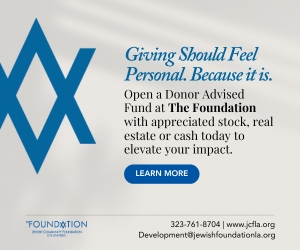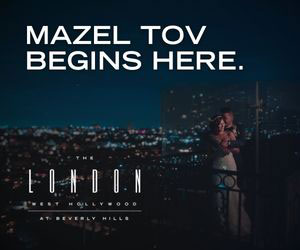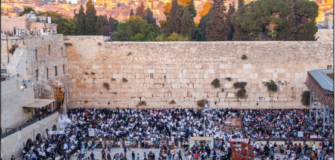Songleader Bootcamp – Buidling Community Through Song
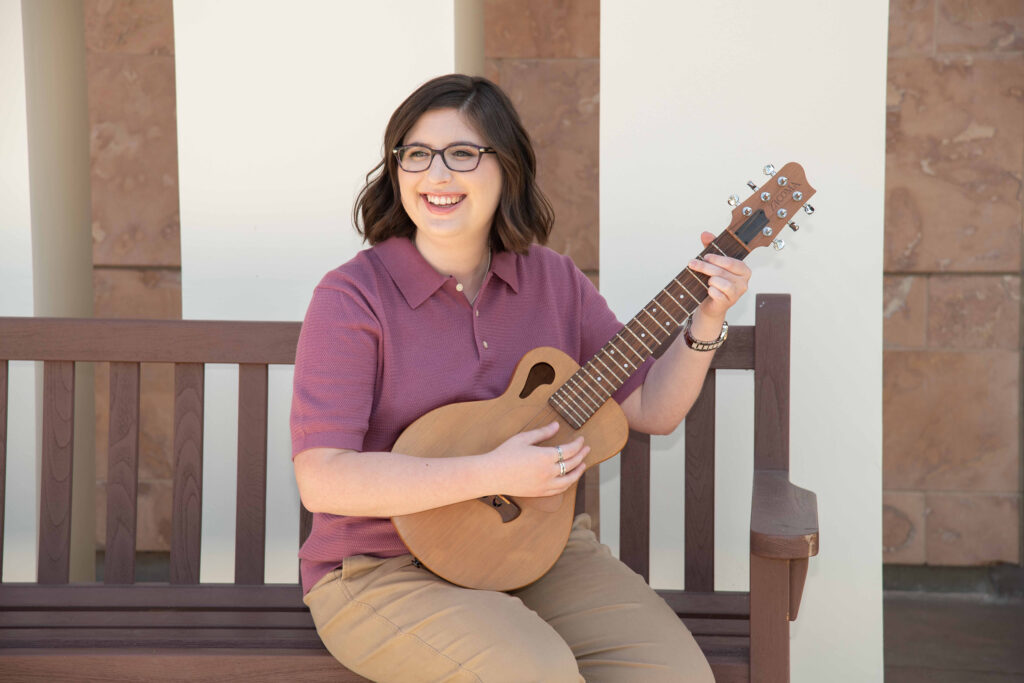
How Songleader Boot Camp leadership inspires change.
By Casey J. Adler
Uncertainty, fear and isolation — everything was out of kilter as Lisa Friedman grasped for human connection in a world tossed into turmoil. Her story echoes those of many young adults during the COVID shutdowns of 2020, when her classes moved online and she returned home to live with her parents in Los Angeles. All of her belongings were stuck at her University of Arizona dormitory, and she grew accustomed to staring into a computer screen for community.
But it was Songleader Boot Camp that gave her “the opportunity to be happy again,” Friedman said.
Songleader Boot Camp, or SLBC, an international conference based out of St. Louis, Missouri, is now in its 15th year. Song may be the prefix, but the leader suffix is the meat and potatoes of the show. Participants fly in from around the world to partake in three days of workshops to become a more effective leader.
Led by nationally recognized clergy, day-school teachers, youth leaders and musicians, it is a jam-packed buffet of electives, each with a specific goal to help one’s community upon one’s return. Classes range from the technical to the psychological: setting up an effective room with chairs, sound equipment 101, speaking from your diaphragm, and inclusivity.
For Friedman, her favorite masterclass was run by SLBC founder Rick Recht, who teaches participants how to use the whole body in song leading. Many of the techniques Friedman learned could easily apply to being a rockstar: charisma, movement, using the guitar to signal to the congregation that the song is about to end, and so on.
“There is so much that goes into the tachlis — or the details in Yiddish,” Friedman said.
Rabbi Brad Horwitz, who launched the conference alongside Rick Recht and Recht’s wife and SLBC cofounder Elisa, noted how many special educators and faculty hail from Los Angeles, including Rabbi Ed Feinstein, Rabbi Dr. Ron Wolfson and Rabbi Bradley Artson.
“I’m deeply grateful to Rabbi Horwitz for ushering this program into the world,” said Sharon Brous, senior rabbi and cofounder of IKAR, a Jewish congregation in Los Angeles. “It’s more than leadership training — it’s a high spirit, a sacred gathering, a reminder of the simple joy that comes just from singing together. The reverberative impact of SLBC is profound.”
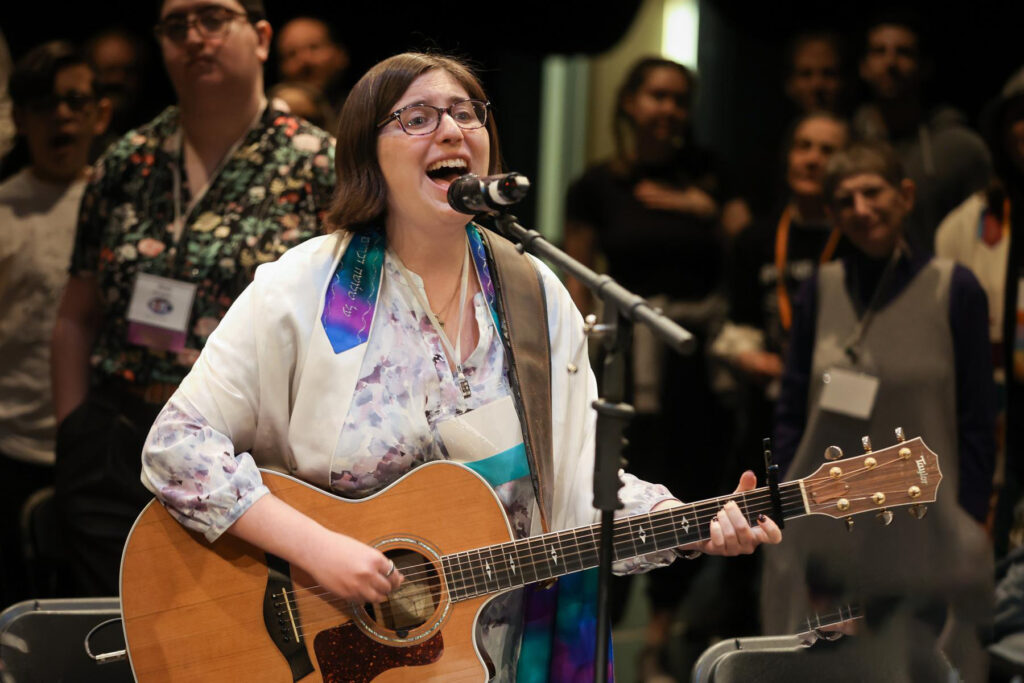
And Rabbi Brous’ response isn’t just public relations fluff for a friend. One major study conducted in 2018 by the Cohen Center for Modern Jewish Studies at Brandeis University noted the effectiveness of SLBC. Two findings in particular stood out:
- The majority of respondents, 82%, said that their understanding of leadership changed as a result of attending SLBC, including 31% who said it very much changed. About half of respondents also reported learning leadership skills at SLBC.
- Over the course of their roles within the Jewish community during 2018, respondents indicated that they interact with approximately 441,000 individuals in both ongoing and occasional bases. The nearly half‐million students, congregants, colleagues and audience members have all potentially benefited indirectly from what SLBC attendees learned about leadership, performance and teaching.
One masterclass that continues to be highlighted is inclusion. According to both Rabbi Horwitz and Lisa Friedman, the inclusion workshops are not just a side dish to expand the conference. Rather, they have become core to its identity in bringing together Jews from all walks of life — culturally, ethnically and denominationally.
“You have to actually be intentional in how you welcome people into your community,” Rabbi Horwitz said. “You can’t just say, ‘Welcome to everybody!’ You have to actually invite and walk the walk. So that’s true for Jews of Color as well as people who have disabilities. You have to create an environment where these people feel welcome, but you also have to be intentional about how you include them and invite them into your space. And in many cases, our institutions in the Jewish community are just not historically inclusive, so we have an opportunity and a responsibility to do a better job.”
Rabbi Sandra Lawson serves as Executive Director of Carolina Jews for Justice in Durham, North Carolina. Rabbi Lawson, who was one of the first Black rabbis at the SLBC international conference, said that she and many Jews of Color have been on the opposite end of countless microaggressions within the greater Jewish community.
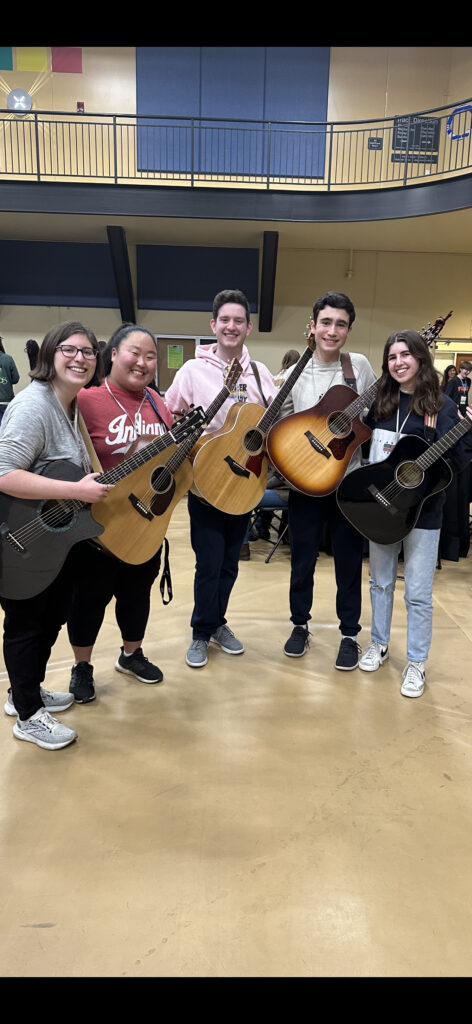
One question Rabbi Lawson has fielded many times at Jewish institutions is: “Are you Jewish?” This simple yet potentially racist accusation has even happened while she was wearing a kippot and tallis. She noted that the second most prevalent assumption against JOC is that they are converts, when, in fact, citing a study by the Jews of Color Initiative, “a majority of Jews of Color did not convert. They were raised Jewish in some form or another.”
There are a variety of tools Rabbi Law son teaches in her workshop for participants to bring back to their congregations. The simplest one anyone can start with is basic greeter training. “Train your greeters on how to treat people when congregants walk in the door.”
Friedman noted that the conference is always improving upon itself and asks participants to help shape the coming years through surveys. For instance, she said, “There are more microphones in rooms than there used to be so that people who are hearing impaired can understand everything. They are keeping hallways clear for those who need more space and access. These are some of the things SLBC has been working on that were issues in the past.”
Rabbi Horwitz emphasized that participants in the three-day conference must come away with a road map before returning to their communities. Part of Friedman’s strategy included the teachings of Rabbi Lawson, so when Friedman returned to her own congregation, she brought back the idea of creating affinity groups. She wanted to help create better programming for JOC, including Queer Jews and Jews with disabilities.
The conference had more than just an effect on the communities Friedman re turned to, it had a profound effect on her own personal life. She is now in the process of becoming ordained, studying at Hebrew Union College’s Rabbinical School in Los Angeles.
“I have seen the growth because it has been healing,” Friedman said. “Coming out of COVID, I was seeking Jewish community that I didn’t have before.”
SLBC is currently accepting applications for its February 15-17, 2026 conference. For more information, visit songleaderbootcamp.com




